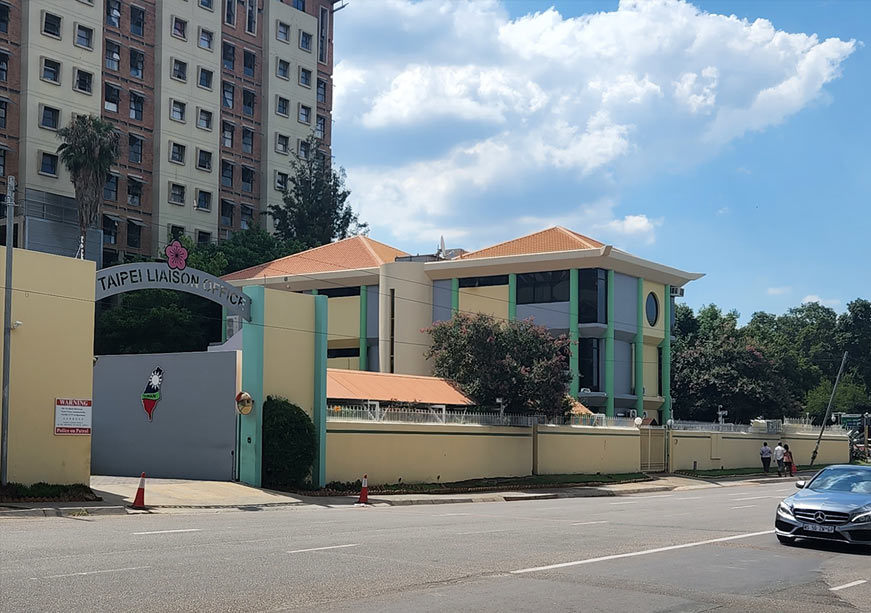-
CENTRES
Progammes & Centres
Location
As technology reshapes the contours of geopolitics, countries will increasingly need to balance ideological commitments with practical considerations of economic and technological resilience.

In an era where technological power increasingly defines geopolitical leverage, Taiwan’s brief imposition of export controls on semiconductor products to South Africa marked a significant moment in using economic interdependence as a diplomatic tool.
The episode, triggered by Pretoria’s unilateral move to rename and relocate it from Pretoria to Johannesburg, revealed Taiwan’s willingness to deploy its dominance in global chip manufacturing as a form of weaponised interdependence. While the restrictions were quickly reversed, the message from Taiwan was unequivocal: Taiwan will not passively accept diplomatic coercion without asserting its own strategic leverage.
Taiwan’s move to restrict chip exports to South Africa was rooted in a longstanding diplomatic grievance. On 21 July 2025, following a high-level South African delegation’s visit to China, Pretoria announced that Taiwan’s liaison offices in Pretoria and Cape Town would be renamed the “Taipei Commercial Office” and would be required to relocate from the capital to Johannesburg.
Taiwan’s brief imposition of export controls on semiconductor products to South Africa marked a significant moment in using economic interdependence as a diplomatic tool.
This move, framed as part of South Africa’s adherence to the “One-China” policy, was widely interpreted as a diplomatic concession to Beijing. In response, Taiwan’s Ministry of Economic Affairs, citing national security concerns, announced the prior approval requirement from the Ministry for a broad range of products, including integrated circuits (IC), chips, and memory, covering 47 categories, before exporting to South Africa.
The ban was lifted within days. However, once South Africa agreed to reopen dialogue over the office relocation, the event illustrated a new and assertive direction in Taiwanese foreign policy. It emphasised Taiwan’s readiness to leverage its strategic industrial advantage to enhance and protect its international status. At the heart of this strategy lies Taiwan’s near-monopoly in producing advanced semiconductors, primarily through its flagship firm, the Taiwan Semiconductor Manufacturing Company (TSMC), which is essential to the global supply chain.
From Taiwan’s perspective, the move had several purposes. First, it sought to push Pretoria to recognise the risks of undermining Taipei diplomatically, particularly since its automotive and electronics industry relies on Taiwan’s critical technological goods. While the short-term impact of the chip export ban may have been minimal, considering South Africa’s modest volume of chip imports from Taiwan, the long-term threat proved to be more profound. Taiwan’s action raised awareness of the potential disruption to South African industries if relations deteriorated further. The automotive sector—a key pillar of South Africa’s manufacturing economy—is particularly vulnerable to fluctuations in chip supply, as demonstrated globally in the aftermath of the COVID-19 pandemic.
By targeting a symbolically important partner in Africa, Taiwan tested the limits of its economic statecraft.
Second, Taiwan’s manoeuvre served as a broader geopolitical message to South Africa and other countries potentially considering similar diplomatic recalibrations in favour of Beijing. By targeting a symbolically important partner in Africa, Taiwan tested the limits of its economic statecraft. The implicit warning was clear: severing or downgrading ties with Taiwan may come with tangible costs, including reduced access to advanced technology.
Third, the move also signalled Taiwan’s growing willingness to act autonomously on the international stage, especially in light of waning diplomatic recognition. With only 12 formal diplomatic allies remaining and the tiny monarchy of Eswatini being the sole partner in Africa, Taiwan’s room for manoeuvre in traditional diplomacy is narrowing. The strategic use of semiconductor dominance indicates a shift from defensive to offensive diplomacy, reinforcing Taiwan’s relevance in a global system increasingly shaped by technological supremacy.
For South Africa, the episode may be viewed as a diplomatic miscalculation. By aligning more closely with Beijing’s geopolitical agenda, South Africa has risked undermining a valuable technological partnership with Taiwan, when global chip supply chains are being restructured and regional technological alliances are gaining more traction. Moreover, the 450 Taiwanese-owned factories operating in South Africa, employing over 40,000 people, represent another layer of economic interdependence that could be affected by worsening ties.
The strategic use of semiconductor dominance indicates a shift from defensive to offensive diplomacy.
South Africa’s Ministry of Foreign Affairs accused Taiwan of disrupting the global semiconductor supply chain, but this critique overlooks the asymmetry of the relationship. Taiwan’s position in the chip industry is not easily replaceable, and the South African government’s apparent underestimation of this fact could have repercussions for its technological sovereignty and industrial competitiveness. Furthermore, with the G20 Summit in view and China's increasingly central position in South Africa's foreign policy framework, the timing of Pretoria’s diplomatic move was interpreted as an effort to placate Beijing at the expense of its longstanding engagement with Taiwan.
The broader implications of this incident extend beyond bilateral relations. It raises important questions for the Global South, particularly for countries seeking to navigate relations with China and Taiwan without sacrificing their strategic autonomy. As Taiwan becomes more assertive in protecting its international space through economic means, other countries may need to reassess the costs of downgrading diplomatic relations with Taipei. The notion that only global powers wield economic coercion has now been challenged; smaller but technologically indispensable actors such as Taiwan can also influence diplomatic outcomes through selective interdependence.
For South Africa, this episode should serve as a cautionary tale about the risks of over-alignment with major powers at the expense of smaller but strategically valuable partners.
In conclusion, Taiwan’s brief but strategic use of its semiconductor industry as a negotiating tool suggests a significant evolution in its foreign policy. It no longer relies solely on moral arguments or appeals to democratic solidarity but is now prepared to use its economic strengths to assert its interests. For South Africa, this episode should serve as a cautionary tale about the risks of over-alignment with major powers at the expense of smaller but strategically valuable partners.
Samir Bhattacharya is an Associate Fellow at the Observer Research Foundation.
The views expressed above belong to the author(s). ORF research and analyses now available on Telegram! Click here to access our curated content — blogs, longforms and interviews.

Samir Bhattacharya is an Associate Fellow at Observer Research Foundation (ORF), where he works on geopolitics with particular reference to Africa in the changing global ...
Read More +